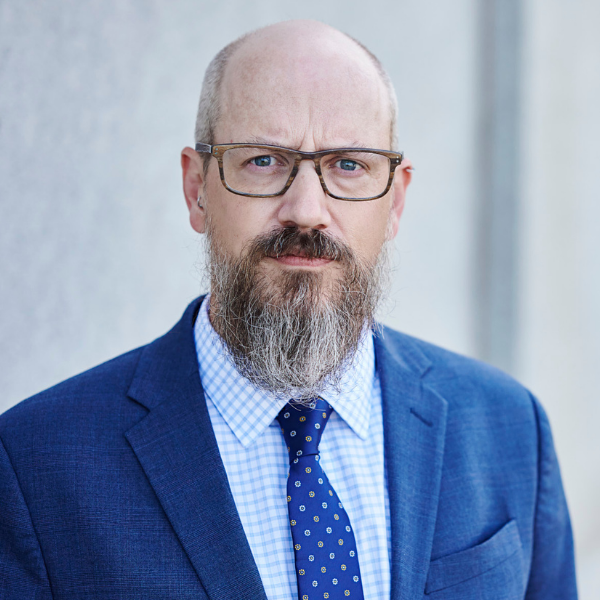He should not hide behind parliamentary privilege and prevent the truth from coming out

The lawless takeover of Canada’s capital city and the dramatic police action required to restore peace were troubling tests of our democracy.
After almost three weeks of harm and the apparent inability of the local or provincial authorities to restore order, the federal government invoked the Emergencies Act.
Let’s be clear, resorting to the Emergencies Act was an admission of failure. A failure by the police to maintain public peace, a failure by the city and province to take the threat to our democracy and safety seriously, and a failure of federal leaders to engage in an honest discussion about the fundamental inequities in our society.
Within days of passing the Emergencies Act, downtown Ottawa returned to some semblance of normalcy. But correlation does not equal causation. Just because the occupation ended after the invocation of the Emergencies Act does not mean that that invocation was why the occupation ended.
There are some good arguments that the federal government was not justified in using the Emergencies Act. But we need all the facts before we can adequately determine if the government met the legal threshold to trigger the sweeping legislation.
The Public Order Emergency Commission, with a mandate to “examine and assess the basis for the Government’s decision to declare a public order emergency [and] the circumstances that led to the declaration,” is expected to hear from more than 60 witnesses over six weeks. These public hearings are vital to ensure accountability and transparency into the federal government’s unprecedented use of emergency powers.
The federal government, the Alberta, Manitoba, and Saskatchewan governments, and the cities of Ottawa and Windsor, Ont. all sought and were granted standing to participate directly in the Public Order Emergency Commission.
All levels of government are represented except one.
The last time I checked, Ottawa was in Ontario.
It was a baffling decision for the Ontario government to sit this out. Standing at the commission, after all, grants privileges. Parties with standing are given advance notice and access to documents and can propose witnesses, cross-examine witnesses, and make submissions.
But standing also comes with obligations, mainly the duty to disclose documents.
It is easier to hide information and duck responsibility when you can keep secrets. Perhaps this is why Doug Ford and Ontario chose not to be in the room.
The commission also released an extensive list of witnesses. The commission has or will hear from, among others, the mayors of Ottawa and Windsor, Prime Minister Justin Trudeau, Mister of Public Safety Marco Mendicino, Minister of Emergency Preparedness Bill Blair, and Canada’s Minister of Justice David Lametti.
Again, it seems one level of government is missing.
Doug Ford, the province’s premier, and all his ministers are conspicuously absent from the witness list.
On October 18, 2022, at a press conference where Ford claimed he “stood shoulder to shoulder” with Trudeau’s use of the Emergency Act, he deflected questions about his willingness to testify at the commission hearings, saying that he had not been asked.
Time for some blunt truth. Ford was lying.
On October 24, 2022, in a letter responding to Ottawa lawyer Paul Champ’s request to have Ford testify, the commission disclosed that “Commission counsel in the course of the investigation made clear that Premier Ford […] would have evidence, particularly within their knowledge that would be relevant to the Commission’s mandate. On September 19, 2022, Commission counsel requested an interview with them. This request was refused. Commission counsel renewed this request a number of times, all requests were refused. Commission counsel then requested that Premier Ford […] agree to testify before the Commission, voluntarily. As of last week, the invitation to attend to testify before the Commission has been declined ‘for the moment.’”
Champ is representing the Ottawa Coalition of Residence and Businesses, which has standing before the Public Order Emergency Commission.
(Full disclosure: My spouse, Emilie Taman, is counsel with Champ)
The commission then issued a summons compelling Ford to give evidence.
Ford’s response was to seek a judicial review of the summons, claiming parliamentary privilege.
Ford appears to be on solid legal ground with his claim of privilege. But let’s be clear, Ford is choosing to deny the commission his evidence.
Ford is refusing to answer some simple questions: Why did he wait until the second week of the occupation of Ottawa to invoke provincial emergencies powers? What were his communications with the city of Ottawa and the federal government? Why was the province largely absent from planning and logistical meetings?
And why did he initially take a hands-off approach, telling protestors, “If people want to come down and protest, God bless ’em. I understand their frustration. I really do.”
Only Ford can answer these questions. By refusing to do so, he is denying the Canadians the complete transparency we deserve.
Ford must check his parliamentary privilege and be honest with the commission and the public.











